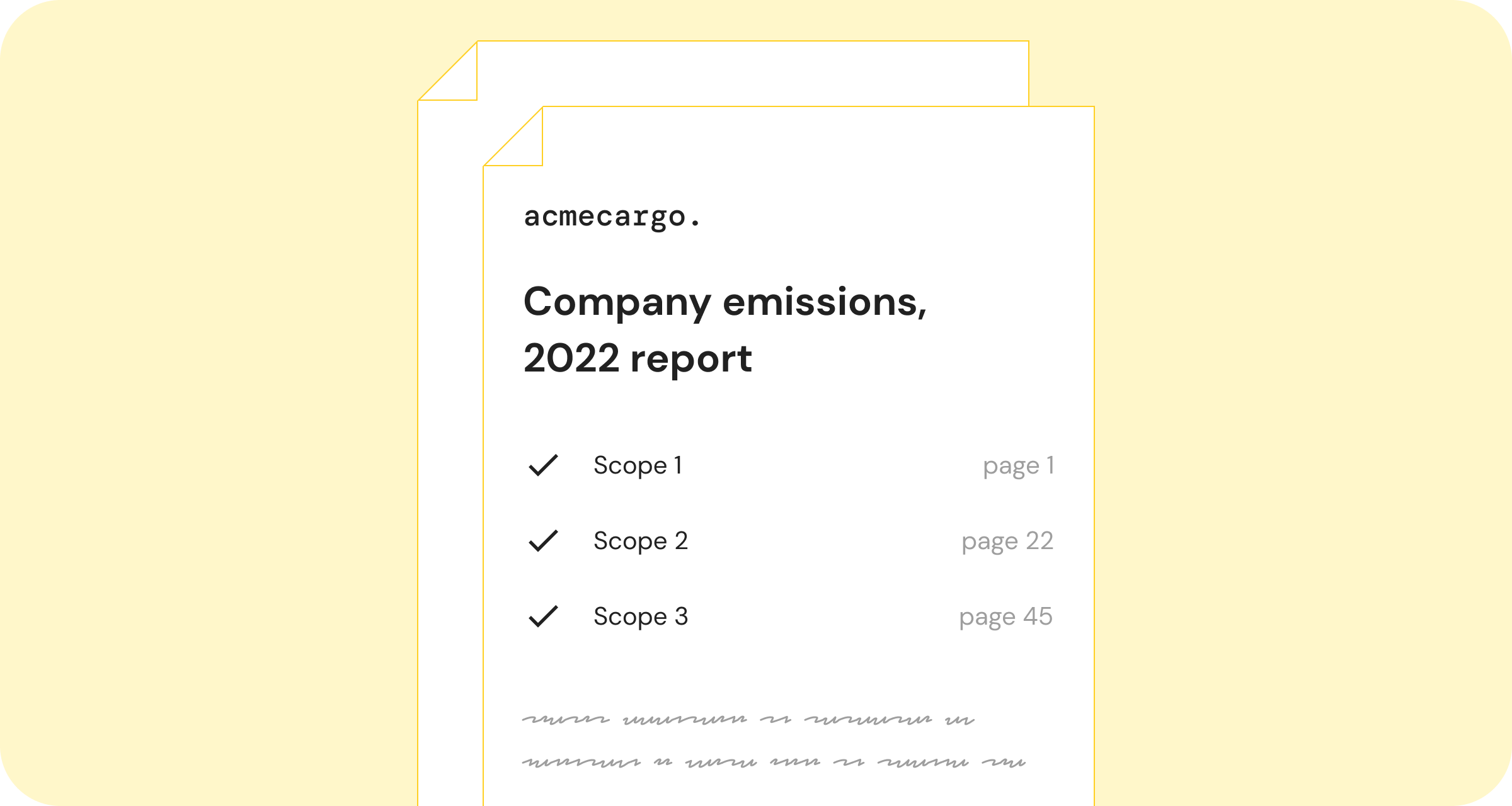

Sustainability should be a top priority for every company, not only because it's the right thing to do, but also because it makes good business sense. Embedding climate impact into the core of your company creates value and competitive advantage for many reasons – from winning new climate-concerned customers to improved retention rates and mitigating against climate risks.
Making sustainability initiatives a business priority should be a no brainer.
And yet, we know that despite this, sustainability teams often struggle to get buy-in on climate investment from senior leaders and decision makers. McKinsey research found only a quarter of CEO’s have sustainability as one of their top three priorities.
In the near future, every company will need to become a climate company. The pressure to address environmental impact is increasing, and legal enforcement of corporate liability for emissions is becoming a reality. Even now, consumers actively seek out environmentally friendly alternatives when making purchasing decisions. Sustainability has become a fundamental factor in assessing IPO readiness; investors and financial institutions prioritise companies that demonstrate positive climate impact when evaluating the health of future prospects for their portfolios. Additionally, talented individuals prefer working for companies that prioritise purpose — something referred to as The Great Resignation.
By taking action on sustainability now, your business can gain a competitive advantage and stand out as a force for good in the eyes of both customers and employees. So why is there still a lack of urgency among businesses when it comes to addressing the climate crisis? Why aren't more companies making sustainability a priority in their plans?
Common Barriers to Business Sustainability
In our discussions with dozens of companies about their sustainability plans, we've discovered that most of them recognize the need to contribute to climate action. They are open to and enthusiastic about working on their own business sustainability. However, when it comes to actually embarking on the journey towards climate positivity, a recurring theme emerges: how to align sustainability with existing commercial strategies and goals.
For any new project or initiative to succeed within an organisation, it must make commercial sense. Many companies struggle to view sustainability as a business opportunity and instead see it solely as a cost centre. The main concerns we hear about prioritising climate impact include:
- Cost: Becoming a climate-positive organisation often incurs expenses, such as hiring a Sustainability Lead, investing in energy-efficient building upgrades, or purchasing carbon offset credits.
- Time: Implementing corporate sustainability measures requires time and effort. Many companies, especially smaller ones, lack dedicated sustainability teams. As a result, incorporating sustainability initiatives may divert resources from areas directly aligned with growth and profits.
- Competing priorities: Companies often have predefined goals and plans, which may prioritise revenue generation. Climate initiatives can be deprioritized with the intention of revisiting them later, leading to delays in action.
- Uncertainty: Business sustainability is still a relatively new concept, making it challenging to quantify its exact commercial outcomes. This difficulty in demonstrating results can make it harder to persuade management to prioritise climate initiatives.
- Reputation: Climate change is a sensitive topic, and communicating sustainability efforts in the right way is crucial. Companies often fear unintentionally conveying greenwashing, particularly when lacking internal expertise.
While these concerns are valid, the cost of inaction is far greater in terms of both stability of humanity’s relationship to our planet, and mounting risk that businesses will need to assure in order to sustain business as usual. Because at the end of the day, emitting greenhouse gases incurs significant damage costs that cannot be ignored by governments, businesses, and consumers alike.
Turn on the news today and you'll see every chapter from David Wallace-Wells' book "The Uninhabitable Earth" one after the other. And the 2021 IPCC report scientifically confirms much of the climate "fearmongering".
As the report puts it:
It's not all terrible though.
Consumers increasingly demand sustainable products and services and employees are attracted to companies with clear sustainability strategies in place. It's encouraging to see companies beginning to make climate impact a strategic priority. Going forward, best-in-class companies will differentiate, beat their competition, and grow profitably by offering the most sustainable product or service in the market.
The number one priority for companies should be to reduce their carbon footprint. However, very few companies will be able to reduce their emissions to zero (at least in the short/medium term). In addition, we need to remove billions of tonnes of CO2 from the atmosphere.
Carbon removal is crucial for the future of our planet. When included in a robust climate strategy, carbon removal is a phenomenal way for companies to have a positive impact beyond emissions reductions. These funds are essential for scaling projects like reforestation, forest conservation or innovative solutions to permanently remove CO2, such as biochar or direct air capture.

At Lune, we are laser-focused on helping companies become best-in-class climate organisations. We make it super easy for any company to access high-quality carbon removal projects and make tangible climate impact a core part of their value proposition. In the future, every transaction we make will automatically remove carbon from the atmosphere. Companies will engage their consumers by allowing them to choose where the money should go while educating them about their climate impact. It is the only way we can scale carbon removal to the extent we need to.
Similar to how over the last decade, every company has become a software company, over the next decade, every company will become a climate company. Powered by Lune.
Readers also liked
Readers also liked

Subscribe for emissions intelligence insights
Get the latest updates in the world of carbon tracking, accounting, reporting, and offsetting direct to your inbox.


